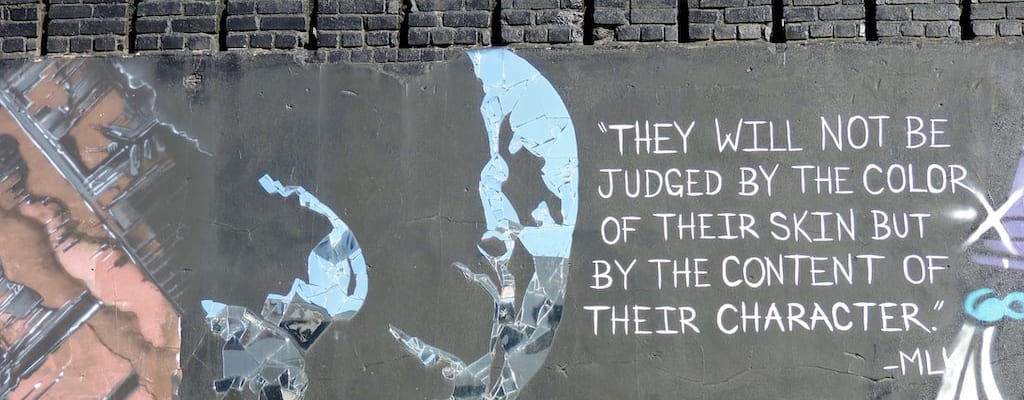character assassination: Idiom Meaning and Origin
What does ‘character assassination’ mean?
In the idiom "character assassination," character refers to a person's moral or ethical qualities, and assassination refers to the act of intentionally damaging or destroying someone's reputation or credibility through false allegations or malicious gossip.

Idiom Explorer
The idiom "inside job" refers to a crime or wrongdoing that is committed by someone within an organization or group, often involving betrayal of trust or abuse of power.
The idiom "in character" means acting or behaving in a way that is consistent with one's typical behavior or personality.
The idiom "hired gun" refers to a person who is hired to perform a specific task, often of a questionable or morally ambiguous nature, such as providing professional services, especially those involving violence or illegal activities, in exchange for payment.
A "hatchet job" refers to a severe and unfair criticism or attack on someone, often in writing or through the media, which intends to damage their reputation or credibility.
The idiom "execution-style" refers to a method of killing someone which resembles a planned and deliberate execution, often involving shooting them at close range.
The idiom "do somebody wrong" means to treat or behave towards someone in an unfair or unjust manner.
The idiom "cut to pieces" means to criticize or attack someone or something severely and mercilessly.
Unveiling the Deception
Character assassination is a widely recognized idiom in the English language. It refers to the deliberate and malicious attempt to destroy someone's reputation, often by spreading false or damaging information about them. The term "character" in this context refers to a person's moral or ethical qualities, and "assassination" implies a targeted and intentional act of destruction, akin to the literal act of killing someone.
This idiom has its origins in the late 19th century, with the word "assassination" dating back to at least the 15th century, derived from the Old French term "assassin," which was used to describe members of a secret Muslim sect known for their political murders. The term was later applied to any targeted and deliberate act of killing.
The phrase "character assassination" gained popularity and entered common usage in the mid-20th century.
Character assassination can take various forms, including spreading false rumors, making defamatory statements, highlighting past mistakes or controversies, or engaging in personal attacks on a person's character, values, or integrity. The primary motive behind character assassination is often to discredit or undermine someone in the eyes of others, thereby diminishing their influence, credibility, or power.
An idiom related to character assassination is "cast aspersions." This phrase means to make damaging or derogatory remarks about someone's character or reputation. It is often used to imply that someone is questioning or doubting another person's integrity or moral standing. Just like character assassination, casting aspersions can have severe consequences for the person targeted, as it can lead to reputational damage and loss of credibility.
Another idiom related to character assassination is "build character." This phrase is often used to describe challenging or difficult experiences that help shape a person's moral or ethical qualities. While character assassination aims to destroy a person's reputation, building character focuses on personal growth and development. These idioms reflect the contrasting ways in which character can be viewed and manipulated in different contexts.
Character assassination can have severe consequences for those targeted, as it can result in social ostracism, loss of employment or professional opportunities, damage to personal relationships, and erosion of public trust. It is a tactic often employed in the context of political campaigns, smear campaigns, or high-stakes legal battles, where damaging someone's reputation can significantly impact public opinion or legal outcomes.
Given the prominence and impact of character assassination, it has also become a topic of interest and study in fields such as psychology, sociology, and communication. Scholars and researchers have examined the psychological effects on the target, the motivations behind character assassination, and the societal implications of engaging in this destructive practice.
Character assassination is an idiom that signifies the intentional and targeted destruction of a person's reputation. Its historical roots can be traced back to the origins of the word "assassination," and it gained widespread usage in the mid-20th century. Character assassination involves various tactics aimed at damaging a person's reputation, often with significant social, professional, and personal consequences. Understanding this idiom provides insight into the dynamics of reputation, power, and influence in society, reminding us of the potential harm that can result from the intentional spreading of false or damaging information.
Example usage
Analysis:
The idiom "character assassination" refers to the act of deliberately and maliciously attempting to harm or destroy someone's reputation or integrity. It involves making false or damaging statements about a person's character, either directly or indirectly.
Here are three examples of how the idiom "character assassination" can be used in a sentence:
- During the election campaign, the candidate resorted to character assassination by spreading rumors and making false accusations about his opponent.
- The tabloid newspaper engaged in character assassination by publishing scandalous stories about a well-known celebrity, tarnishing their public image.
- In a heated argument, one of the participants resorted to character assassination, attacking the other person's personal life and spreading malicious gossip.
More "Usage" idioms



